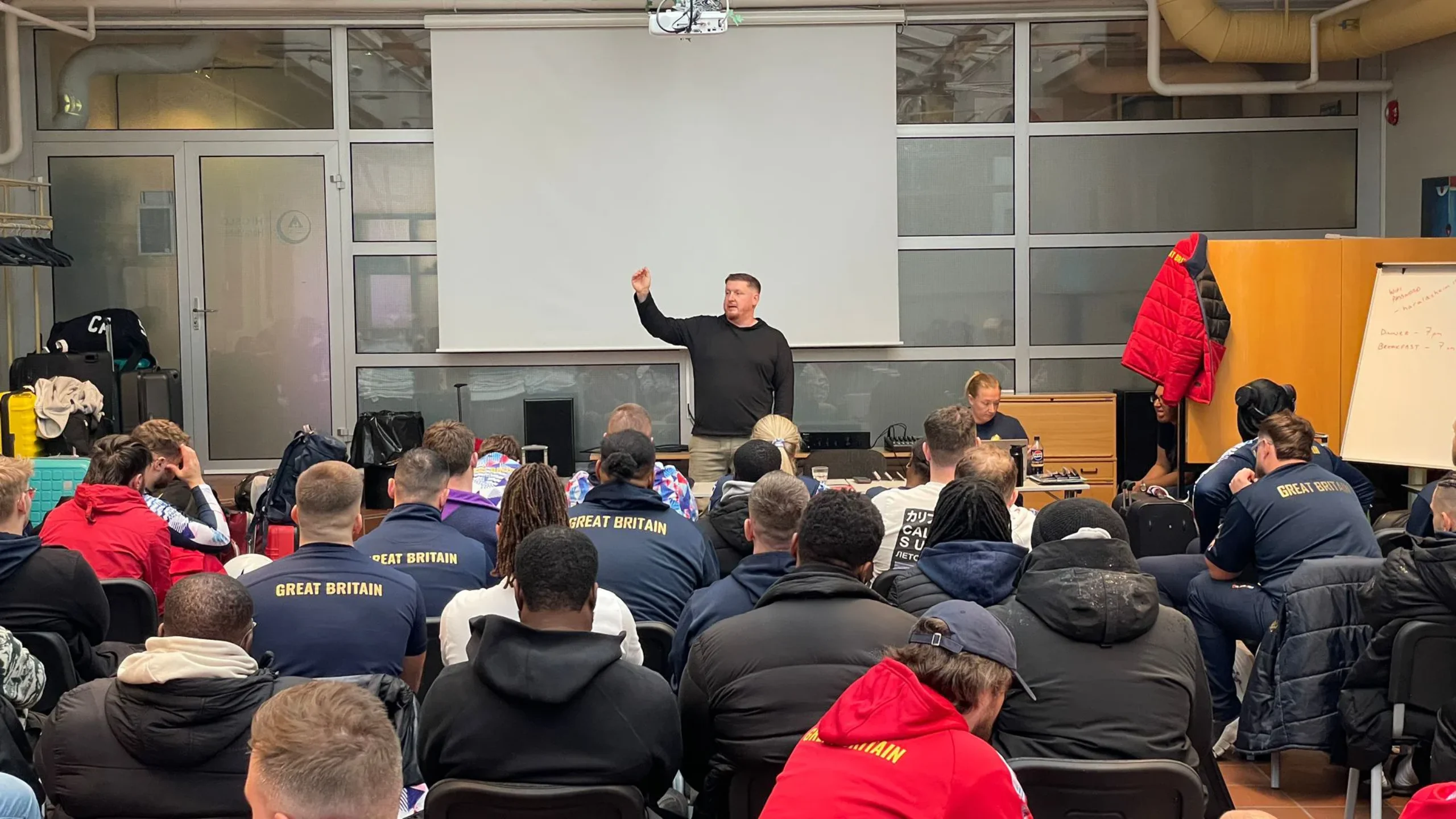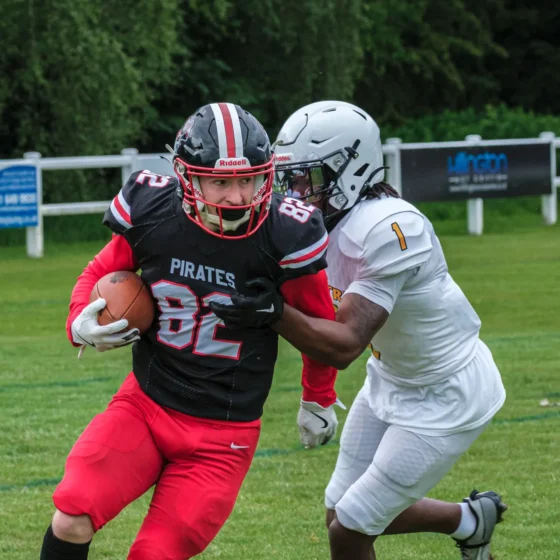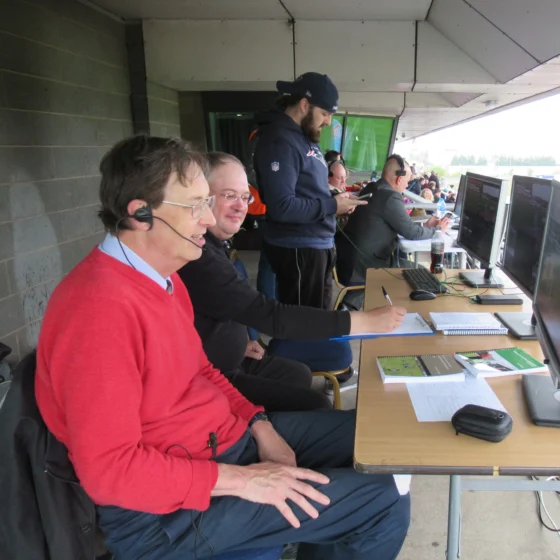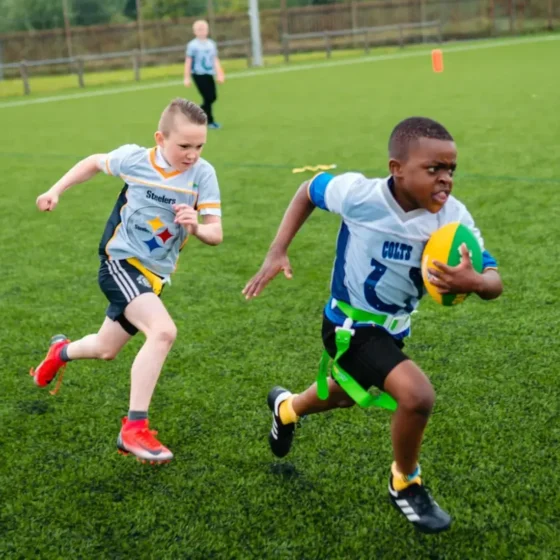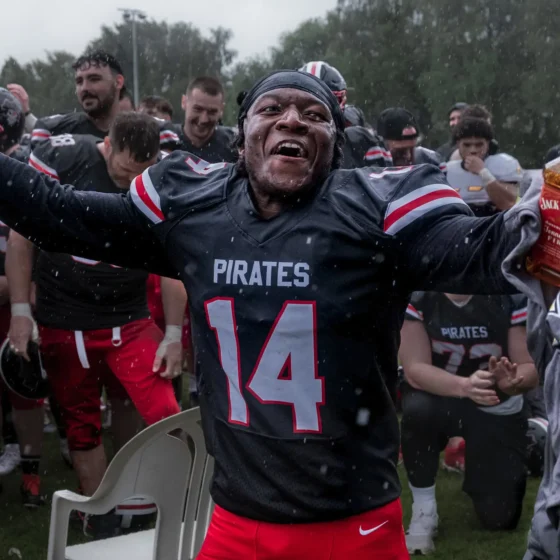Jason Scott has played and coached in Canada and the USA, and since 2020 has been the head coach of the GB Men’s Team. You’ll also find him on the sidelines at the University of Nottingham.
It makes him responsible for the development of hundreds of talented players in British American Football. Here, this experienced American Football leader shares some insight and guidance for players and coaches, experienced or new. Read on for his lessons in the sport…
Draw from a range of inspirations
“The older I get, the more diverse my inspirations as a coach are. I look at people like Brendan McCullom from the England cricket team, and what he’s doing to English cricket. How he creates chaos and wants to be the instigator of an aggressive side, not be timid, and be on the front foot all the time. And Phil Jackson, who was Chicago Bulls head coach and went to the LA Lakers, how he relates to the players.
“I see myself as a players-led coach, I want to have fun. I’m not an authoritarian by any stretch of imagination. I want players to enjoy the process. I think Pete Carroll (Seattle Seahawks) is probably the best proponent of that in college football and the NFL, in terms of always having fun. He’s high energy, he’s motivated. And in recent times, Dan Campbell at the Detroit Lions is still quite a young head coach who played not so long ago. He has fun and relates to the players.
“I had the fortune of working with some great coaches in my time. Bobby Holmes at Endicott College was a huge influence of mine, as is Jeff Collins, who was my defensive coordinator when I was at Mississippi State. He was most recently a defensive coordinator at University of North Carolina. Those are the guys who have influenced me. I think you’re the sum of your total experiences, and you ought to draw from a wide variety of inspirations and styles and techniques.”
But always be unapologetically you
“When I first went to the US I was trying to be the coach that you see on TV and in films. That tobacco-chewing loud mouth. But that’s never been me. I quickly found that my biggest weakness was actually my biggest strength. I was a British guy who might not have had that much experience in football, but because of that, I wasn’t blinkered by the way things should be done. I was more innovative. I was more relatable to the players. I had the ability to adapt quicker.
“Whilst I couldn’t necessarily coach their football skills as much as I would have liked, I could coach their character and who they were as a person. I got the best from them, and we were hugely successful from that.
“So while I have my influences, I am still uniquely me. My background is British. I played British football. I played cricket, rugby, and soccer when I was younger. I am who I am. My big bit of advice for coaching in any sport is to be unapologetically you. Don’t try to be anyone else. Draw on your own experiences, values, and characteristics, and put across something genuine. I don’t go out to try and be Andy Reid or Bill Belichick or Mike Tomlin. I go out to be the best me I can be.”
Coaching is about creating success for others
“Coaching, for me, is putting people in a position to succeed. Success is different for every single person, but if you want to coach you need to have that at the forefront of your mind. How do I help this cohort of athletes, or this person be the best version of them they can be. How do I put them in a position to succeed?
“Coaching, for me, is putting people in a position to succeed. Success is different for every single person
“The way you do that is by listening to them, by making communication a two-way street. You need to express what you want from them. You need to express the aims of the drills. And every drill that we run isn’t done for the sake of doing it, we don’t. We’re not doing it to perspire. We’re doing it to get better. What is the real world relevance and significance of this drill?
“So whenever we put the drills together we’ll say this is to improve tackling, or this is to improve training your eyes, or putting you in a good body position, or to catch balls. So be prepared. Be a good communicator. Understand why you’re doing it for your audience, and make sure you’re running drills that have real world relevance.”
Be adaptable and willing
“The phrase that sums British American Football and British coaching is, ‘Necessity is the mother of invention.’ We don’t have all this fancy equipment around. We have to improvise and figure out ways. And I think my unique approach to coaching in the US really allowed me to get the best from the players.
“We are a niche sport. We are a sport that suffers by being largely amateur. There’s no money in the sport, so we rely on the goodwill of volunteers and the passion of the coaching and the football fraternity to to really drive the sport. And now, with the LA Games having flag football in 2028 we’re hopeful that this could be a really good launch pad for the game.”
Winning is great. But growth is better
“Winning is great. I’m a competitor, but I’m here to grow the game. I’m here to give people the opportunities that I had at university, because those years at Loughborough really transformed me and made me the man I am. So I want to give opportunities to these guys and girls now who are starting their football journey.
“Seeing players go from a skinny 18-year-old who can’t put kit on for the first time, who struggle to run around the field and perform many athletic movements to see them succeed, whether it’s in their first job or by their final year, that’s real growth for me. We have guys who, two years ago, walked in at Nottingham having never played the game before. Within 12 months, they were in the GB national programme and they were playing international football.
“Winning is exciting, but growing the athletes and growing the sport is inspiring for me. That’s what gets me up in the morning. To see the growth of these individuals and they see that penny drop for the first time. That’s the inspirational factor.”
Above all, have fun
“I always try to understand my audience, whether I’m coaching under-14 flag or the men’s national programme. I tailor my approach to that level. But at the core of it, have fun and enjoy why we’re there in the first place. It’s a stupid sport, it looks ridiculous. But we love it. I’m driven to grow the game, I love it, and I want to open people’s eyes and let them enjoy it as well.”










